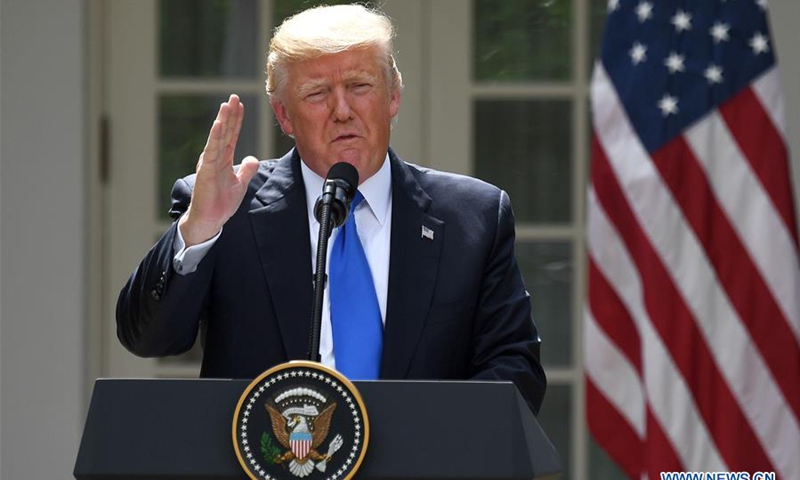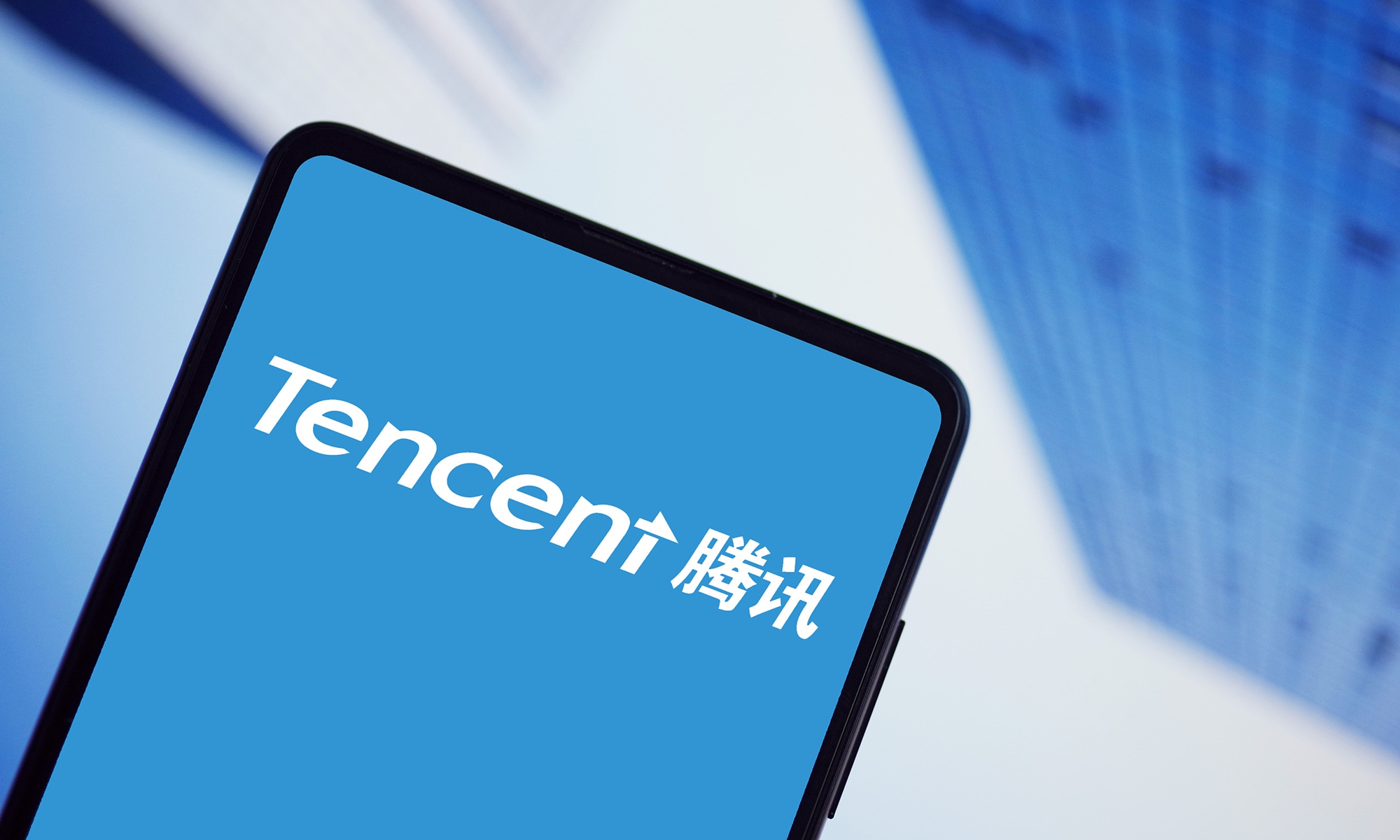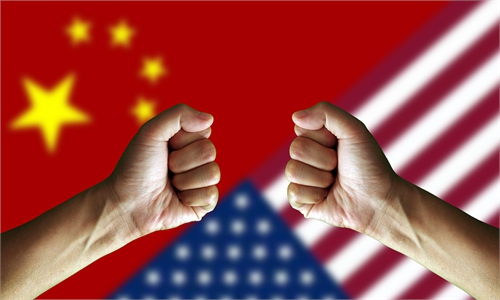Mulling to blacklist tech giants forewarns perilous finale
China has cards to deal with US’ ‘unhinged’ moves, calmly prepared

US President Donald Trump (Xinhua file photo/Yin Bogu)
Even as he incited violence in the US capital that plunged the country into chaos, President Donald Trump appears to be stepping up his ill attempt for China-US economic decoupling, as his administration reportedly mulls blacklisting Alibaba Group and Tencent Holdings, foreshadowing what Chinese analysts call a "dangerous" two weeks ahead for China-US relations.
Considering a ban on US investors from holding stakes in two of China's biggest and most globalized companies signals that Trump, who has relentlessly tried but largely failed to crack down on China over the past four years, could remove any gloves left and make more unhinged moves against China in financial, trade and economic areas, aiming to push China-US ties into an irreparable state, analysts warned. But they said China also holds many cards in case Trump takes extreme actions.

Tencent Logo Photo:VCG
More blacklisting
Officials at the US State Department and Department of Defense were considering banning US investors from investing in Alibaba and Tencent, by adding the two Chinese firms onto a blacklist of businesses prohibited in gaining investments from the US over accusations of ties with the Chinese military, several US media outlets reported on Thursday.
If followed through, the move could mark a serious escalation in the US crackdown on Chinese companies, as it would result in serious disruptions not just to the two companies' financing operations but also to the US stock market, where the two companies are listed.
Responding to reports of the US considering blacklisting Alibaba and Tencent, Hua Chunying, a spokesperson for the Chinese Foreign Ministry, said on Thursday that "China will take necessary measures to firmly safeguard Chinese companies' legitimate rights and interests and firmly support Chinese companies in protecting their own rights and interests in accordance with the law."
The reported actions against Alibaba and Tencent followed a pair of moves by the Trump administration over the past few days, including signing an executive order on Tuesday to ban eight Chinese mobile apps, including Tencent's QQ Wallet and Ant Group's Alipay, a plan to delist three Chinese telecom companies - China Mobile, China Unicom and Chinese Telecom.
The Chinese Foreign Ministry has repeatedly criticized these moves and vowed to take necessary measures to protect Chinese businesses.
The potential action against Alibaba and Tencent carries different meanings, as it involves two massive, highly globalized corporations with a combined market capitalization of over $1.3 trillion and very diversified global investors, including those in the US, whereas previous targets are mostly Chinese state-owned enterprises (SOEs) which have less exposure to the US.
Angelo Giuliano, a Hong Kong-based financial consultant from Switzerland, said that the blacklisting, if followed through, could deal huge blows to the US financial market and global investors.
"This will have a big impact," Giuliano told the Global Times on Thursday, adding that the move is likely to be reversed because "it might be too damaging [for the US] to hit Alibaba and Tencent as there are lots of business synergy between those firms and the US economy."
Following the reports, Alibaba's stocks trading in Hong Kong plunged 3.91 percent on Thursday, while Tencent's shares dove 4.69 percent. In light of rising tension between China and the US, Alibaba and other Chinese tech firms have been shifting to bourses in Hong Kong and the Chinese mainland to raise funds.
It remains unclear how the firms would respond to the new reports. The two companies could not be reached for comment as of press time on Thursday.
Given the potentially huge implications for not just Chinese companies but also global investors, the move signals that Trump has become increasingly unhinged in pushing China-US economic ties into a dangerous realm that could be irreparable for the incoming Joe Biden administration, Chinese analysts said.
Dangerous period
"[Trump] wants to heighten conflict between China and the US in order to make some wiggle room for US domestic partisan conflict. The bigger the stalemate is between China and the US, the more difficult it will be for Biden to look for common ground in handling such issues," Cao Heping, an economist at Peking University, told the Global Times on Thursday.
Under such thinking, the Trump administration could take more drastic actions against China in the next two weeks or so in both geopolitical and economic areas before it is expected to leave the White House, analysts said.
In the economic area, Trump is likely to crack down on more Chinese companies, including SOEs and other businesses that are in critical sectors of the Chinese economy, such as state-owned oil companies, banks and utility providers, according to analysts.
However, in this regard, Trump "has played all his cards. Even if he targets a certain Chinese firm, it would be just an increase in number… and will not have material impact," He Weiwen, a former senior Chinese trade official, told the Global Times on Thursday, noting that the most important would entail what Trump might do regarding the Taiwan question.
The US State Department held a so-called political-military dialogue with the island of Taiwan on Thursday, in a serious provocation toward China, and the"dialogue" has drawn harsh criticism from the Chinese Foreign Ministry. US Secretary of State Mike Pompeo even said on Wednesday that US Ambassador to the UN Kelly Craft would visit Taiwan, according to Reuters.
Still, in the economic area, there are still some extreme actions Trump could take, in addition to sanctioning more Chinese companies, analysts said. Though highly unlikely, Trump could order to delist all Chinese firms from the US. He could still try to label China as a "currency manipulator," which could result in serious sanctions and is a favorite topic for Trump.
The US could also attempt to try to cut off China from the US dollar payment system, known as the Society for Worldwide Interbank Financial Telecommunications (SWIFT), though it would be a disastrous move for the US itself as well, analysts said.
"He might still do some crazy things before the end of his mandate, [but] it's impossible to get China out of SWIFT," said Giuliano, adding that it's more likely Trump would impose more sanctions related to technology transfers.
Cao said that Trump might even order the US military to inspect coal, crude and other crucial energy resources headed for China in international waters in an attempt to cut off China's access to raw materials. Ultimately, Trump is pushing to "elevate technology blockades and embargoes to a conflict between development models," Cao said.
But any aggression will likely attract a firm response from China, which also holds many cards as well in case of extreme actions from the US, including China's massive holdings in the US Treasury, access to crucial materials such as rare earths and a huge domestic market that many US businesses rely on, analysts said.
Any response to US aggression would also likely be measured and targeted, analysts said. For example, after the New York Stock Exchange said it would delist three Chinese telecom firms, Dong Shaopeng, an advisor for the China Securities Regulatory Commission, suggested that China should also require US companies doing business in China to report their links to the US military.
"The Chinese government could apply the principle of reciprocity to US financial institutions and companies seeking access to the Chinese market," Dong told the Global Times on Thursday.




